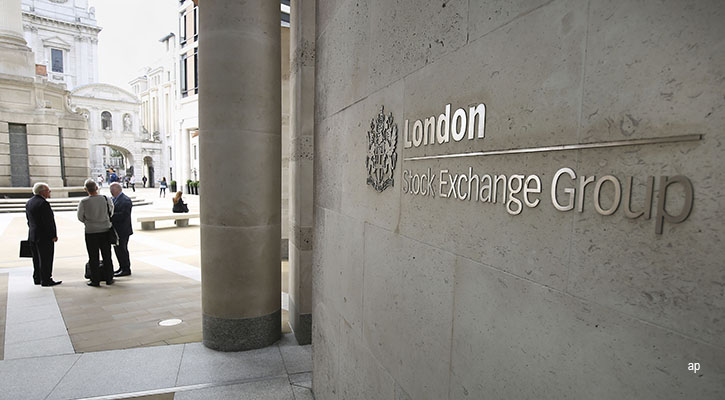
Edinburgh is the seat of the Scottish Parliament and the stronghold of the Scottish National Party. It's also home to a world-famous arts festival and its accompanying comedy fringe.
But it's also a major insurance centre and the headquarters of NatWest Group, which, under the supervision of the old Royal Bank of Scotland (RBS), was bailed out in the financial crisis under the last Labour government.
That doesn't make it a natural location for a Conservative chancellor to launch a reboot of London's Square Mile, some 409 miles to the south as the heart of the English economy.
But the Edinburgh Reforms, themselves a reboot of 2021's Mansion House announcements, beckon a promised land of more innovative and vibrant corporate performance and, with that, better returns for pension funds and retail investors alike.
This is a tough balancing act. It's about having regulatory architecture that is both tough enough and loose enough, or, as one investment trust manager puts it to us today, not "throwing the baby out with the bath water."
Without wishing to dwell on the financial crisis, RBS's demise was not a glorious example of either. In today's environment of corporate governance, almost all British companies are run better than RBS was in its imperial phase.
UK Regulation - Fighting the Last War?
The regulatory landscape of 2024 is to a large extent a legacy of that cataclysm, and represents a recognition that the Treasury's pre-crash "light touch" approach to the City was naive at best and disastrous at worst.
But have regulators – in an effort to prevent another RBS-style implosion – gone too far? And is the current regime now appropriate, or is it a case of fighting the last war rather than the current one?
Politicians don't like to say this out loud, but there is an assumption that "loosening" regulation might be one way to kick the current malaise of unproductivity, sluggish growth (if any) and paranoia about risk.
Conservatives the world over are generally keener on more markets than regulation, of course, but the UK does have a reputation for high standards of corporate governance, which is one attraction for some foreign investors. Even seasoned fund managers point this out. Dismantling the regime could be dangerous.
LSE Takes on NYSE
The current mood is downbeat. Companies are choosing to list in the US rather than the UK (see the case of ARM), changing their primary listing to New York, or not listing at all. There was only a handful of IPOs in 2023 in London, and none shot the lights out.
Despite the markets going "risk-on" last year, the FTSE 100 barely moved. It's often said the UK has the "wrong sort" of companies. Finance and energy stocks still dominate the FTSE 100 more than 40 years after its inception. Of course, all Europeans would like stocks like the Magnificent Seven (Apple [APPL], Microsoft [MSFT], Alphabet [GOOGL], Amazon [AMZN], Nvidia [NVIDIA], Meta Platforms [META], and Tesla [TSLA]) in their home market. But everyone wants an economy as dynamic as America's. People talk less about the house prices in Silicon Valley!
What does the UK government say? Naturally its language is cautious but the choice and order of words is telling. The UK's success as a financial services hub is built on "agility, consistently high regulatory standards, and openness". And the sector needs to benefit from "dynamic, proportionate regulation" (my emphasis added).
How much regulation is proportionate? And is there a correlation between how well UK companies are run and the attractiveness of the UK as a place to invest? That's probably hard to prove. For more on that, follow Morningstar.co.uk this week for an article on how UK companies stack up on governance risk.
An Election Looms
But all this may be irrelevant anyway. There is an election this year, and commentators are talking about a 14-year-old Conservative-led government feeling tired. There is also every sense Labour is expected to have its own approach to financial regulation. The shadow chancellor Rachel Reeves has made no secret of her desire to work with business rather than against it.
Last time the party was in power it had to face a once-in-a-lifetime event of a global financial crisis, so it will be hoping for plainer sailing this time around. Perhaps that also means it will be risk-averse in a way certain Conservatives just aren't. Just like his friends in Edinburgh, the current chancellor may well find himself watching from afar some time soon.





























